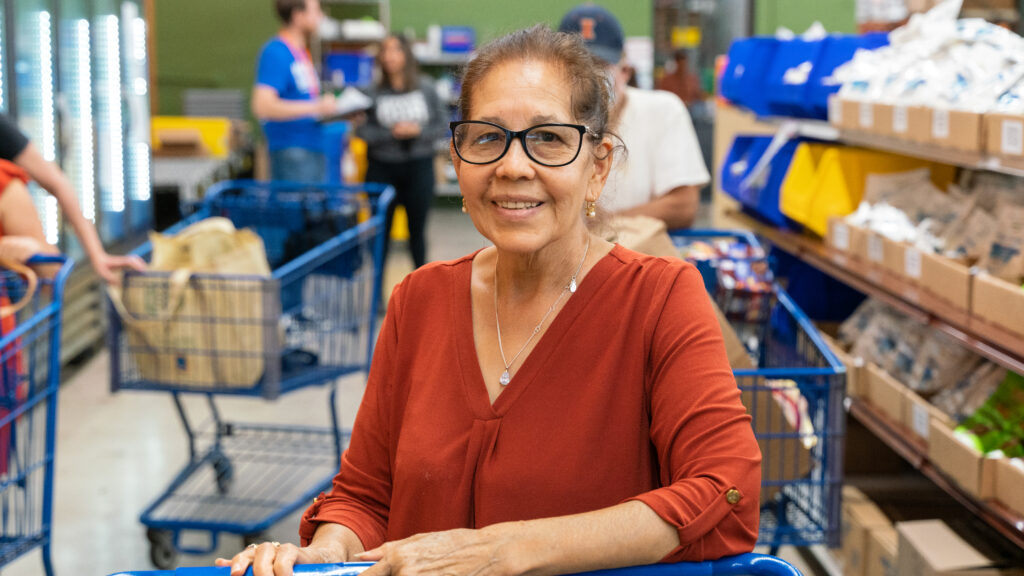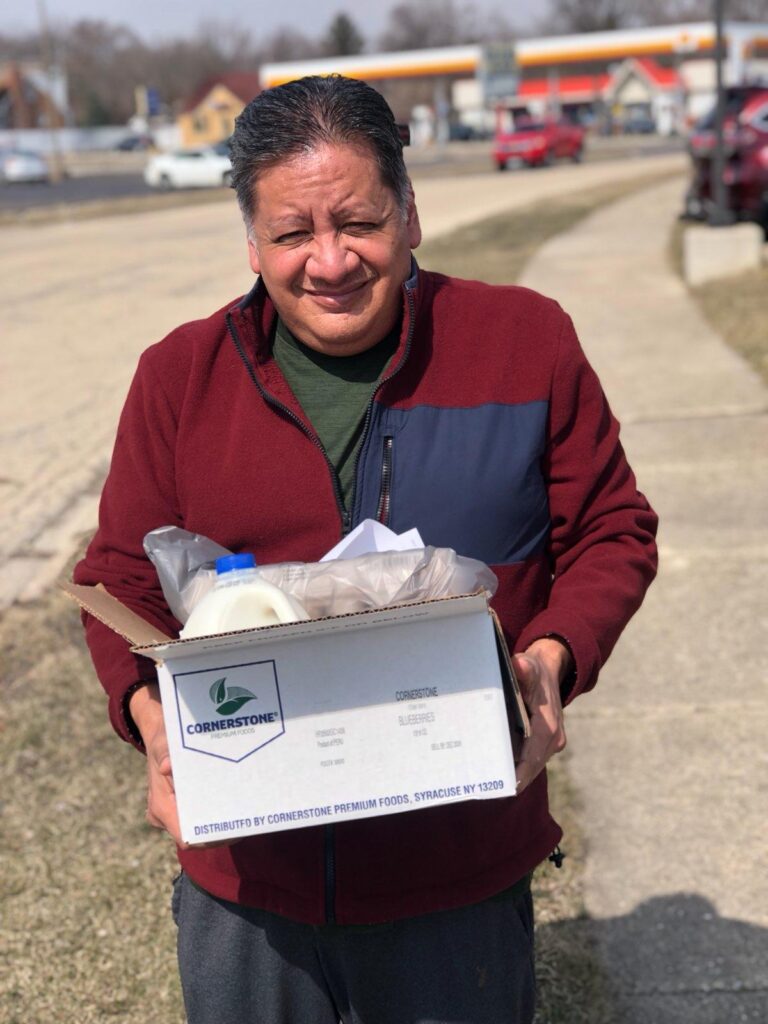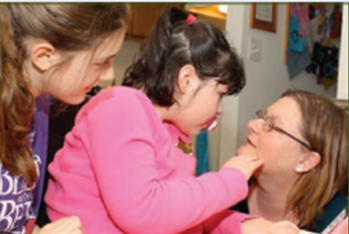We met with Clifford at the Salvation Army food pantry in Kankakee, Illinois, to talk about the challenges his family has faced and the positive role the food and healthy eating services provided by the Northern Illinois Food Bank have played in their life. “With what I make, I could never afford to get the food we need at the grocery stores,” shared Clifford.
Clifford was sidelined from his career as a plumber in good standing with his local union due to a physical disability incurred on the job. “We had to move cast iron tubs up to the second floor of homes [being renovated],” said Clifford, adding, “After that, my back was shot, and I had to get a three-level fusion.” A spinal fusion is a surgical procedure that links spinal vertebrae to stabilize the back.
Since his injury and surgery about 20 years ago, Clifford—a married father of three—has relied on disability to support his family. His oldest son is studying to be a doctor, and his two other children are 19 and 16 years old and reside at home.
While Clifford and his family do supplement the food they receive at food banks with trips to the grocery store, he said if community pantries weren’t available, it would affect us because we depend on all of them to help us out,” adding, “I can’t believe the prices on some food today.”
Not only does everyone deserve the food they need to thrive, but opportunities to access essential resources should be convenient and welcoming. Clifford reflected on his food bank experiences, “They are good people here. They’re nice and treat you with respect, like a human being instead of somebody needy.”
Of course, continuing to support food distributions and consistently providing healthy food for our neighbors depends on the community’s generosity of volunteer time and financial support.
“I’m appreciative of what people donate, and I want to thank everyone who donates to this cause because it not only helps me and my family, but it helps so many others,” said Clifford, who often thinks about those who have even greater struggles. “There are people who are homeless and who need more support, even more than me. If I see that, I’d rather have them have it, and I’ll go without a little bit.”
That spirit of community to care for one another helps create a safety net for our neighbors experiencing food insecurity.


